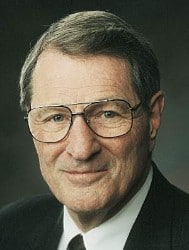
“Those who “live without God in the world” anxiously glean their few and fleeting satisfactions, but they are unable to find real happiness. . . . Ignorant of the plan of salvation, many simply do not know what the journey of life is all about. Therefore, modern selfishness and skepticism brush aside the significance of the Savior. . . .”
| Ensign, March 1998, p. 9